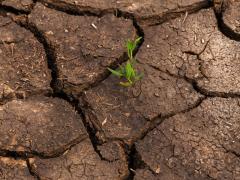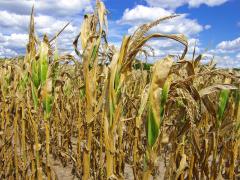Welcome to the New Drought.gov!
NOAA’s National Integrated Drought Information System (NIDIS) has launched the redesigned U.S. Drought Portal (www.drought.gov) to better serve stakeholders, decision makers, the media, and the public.
The new website features updated content and new interactive architecture designed to provide actionable, shareable information and easy-to-understand graphics describing current drought conditions and forecasts by city, county, state, zip code, and at watershed to global scales. The Drought Portal also aggregates and presents drought impact data for economic sectors such as agriculture, energy, water utilities, and recreation using interactive maps and data that don’t exist anywhere else.
“The new state of the art U.S. Drought Portal provides numerous decision support resources to enable communities and economies across the United States in efforts to strengthen their resilience to drought,” said Veva Deheza, Executive Director of NIDIS. “Whether you are looking for current drought conditions in your county or needing to make water management decisions during a drought, the new U.S. Drought Portal is designed to be a one-stop shop for data, decision-support products, resources and information on drought.”
Need to find the latest drought status? Head over to the Data and Maps section, where you can get the latest drought conditions, impacts, and outlooks and as well as drought-related maps for temperature and precipitation, wildfire updates, and soil moisture conditions, and more.
The Portal also has the following four major new features:
- Drought conditions down to the city and county level where you can see current conditions, key indicators of drought, outlooks and forecasts, and historical drought conditions.
- Historical data and maps, including U.S. Drought Monitor data going back 20 years, standardized precipitation index (SPI) data going back 125 years, and paleoclimate data (e.g., from tree-ring analysis) going back 2,000 years.
- By Sector section, which shows drought impacts on different economic sectors, such as agriculture, energy, water utilities, and tourism and recreation.
- Research and Learn section where you can “go back to the basics” on drought with definitions, overviews of different types of drought such as flash drought and snow drought, and learn about initiatives like the National Coordinated Soil Moisture Monitoring Network.
Watch this demonstration video to learn more about the new Drought.gov.
Provide your feedback on how the new Drought.gov is serving you, how you use drought-related information in decision making, and/or what other resources you would like to see available by taking this survey.
For technical or other questions about the new Drought.gov website, please email drought.portal@noaa.gov.





